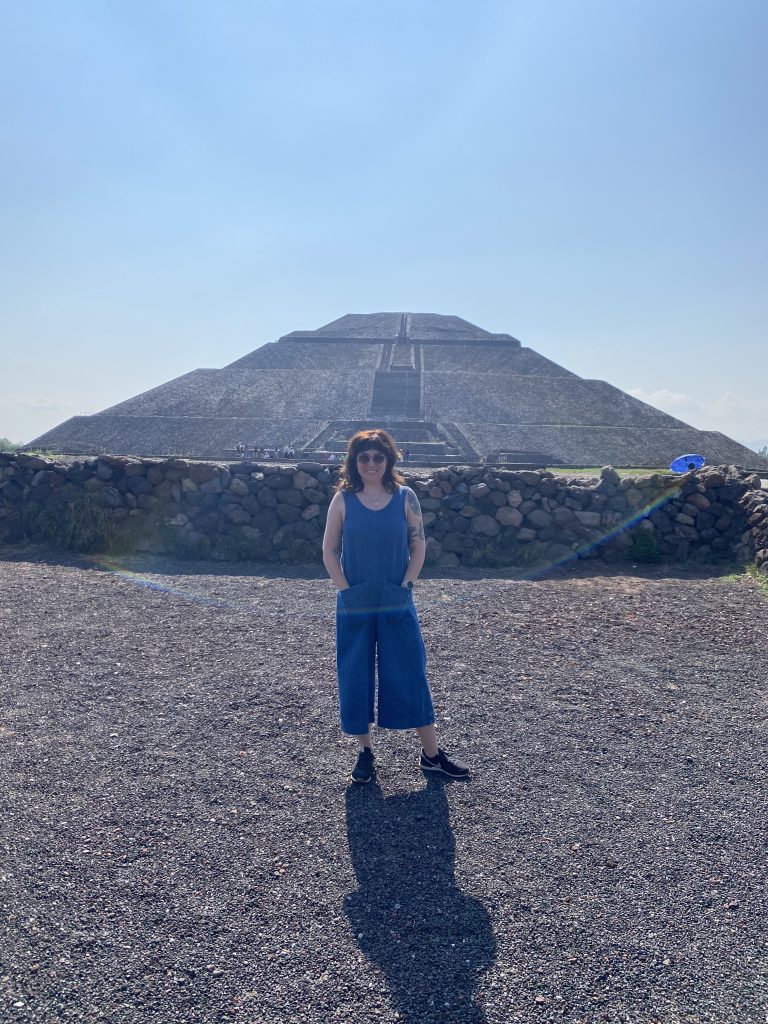By some metrics, Mexico City has more museums than any other city in the world. While this oft-quoted statistic is somewhat contentious on the internet, it’s undeniable that the city’s rich cultural history made it the perfect location for the 51st Annual Art Libraries Society of North America (ARLiS NA) Conference. The heady, intellectual experience of attending an academic library conference was bookended and perfectly complemented by visits to some incredible cultural heritage sites – from Teotihuacan, some of the most architecturally significant Mesoamerican pyramids dating back to 200 BCE, to Diego Rivera’s foundational murals at the Secretaría de Educación Pública.
Although exploring the city’s incredible open air markets, museums, and amazing small bookstores like Casa Bosques was definitely a highlight, the conference itself proved to be an invaluable learning experience. There were a few great sessions on transformative pedagogy – including one on critical visual literacy from University of Houston’s excellent Research and Learning department (whose videos and guides I often use as a template for my own!). However, the majority of the sessions were collections- and assessment-focused, which was timely for me as I’m considering how to better support the Women, Gender & Sexuality Program through collection development. Some of the highlights included:
- Andrew Wang comparing collections assessment at three very different institutions: the Yale Center for British Art, the University of Oregon Design Library, and the North Carolina Museum of Art. His maxim that “deaccessioning is a way to diversity collections,” is one that will be rolling around in my brain for a while now!
- Emily Davis Winthrop on implementing diversity, equity and inclusion-focused assessment of Virginia Commonwealth’s Art collections as part of their Strategic Action plan for 2028. VCU has committed themselves to a 2% growth each year in acquisitions that support cultural, gender and ability diversity. One of their strategies for documenting this is using secondary fund codes in Alma, which definitely gave me some food for thought.
- Matt Garklavs, Electronic Resources Librarian at Pratt, discussing how to do ethical user research in eResources. The talk looked at a lot of really interesting work, much of which was inspired by Sarah Lamdan’s 2019 article in In The Library with the Lead Pipe, on surveillance, privacy, assessment and patron data.
- A truly inspiring panel on “Black memory work,” featuring Kimberly Annece Henderson, curator of digital projects for the New York Public Library’s Schomburg Center for Research in Black Culture in Harlem, whose archival research on Black history in America was featured in the 1619 Project.
I also had the distinct privilege of attending a talk by JHU Alum and former Sheridan Libraries’ graduate student coordinator, Ben Gillespie (PhD, Art History), about his efforts to broaden access to the Smithsonian Archives of American Art’s oral histories via the podcast he hosts, ARTiculated. Ben says hi to everyone who supported him in his time at Hopkins, and encourages you all to give ARTiculated a listen!

